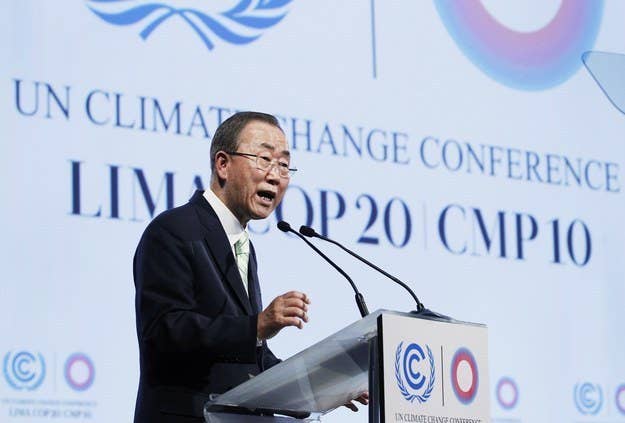
After late-night arguing at U.N. talks in Lima, Peru, negotiators reached an agreement Sunday morning that sets the stage for a global climate pact in Paris next year.
The deal covers what information should go into the pledges that countries submit for next year's Paris pact.
The talks were scheduled to end at 6 p.m. local time, Friday but continued until approximately 2 a.m. Sunday, as Peru's environment minister and conference chairman, Manuel Pulgar-Vidal, kept pushing delegates from 190 countries to come to an agreement.
Hours before the agreement was made, an earlier draft was rejected by developing countries, which accused wealthier nations of reducing their responsibilities to fight global warming. Delegates from developing nations said the draft blurred the distinction between what rich and poor countries are expected to do.
By midnight on Sunday, Pulgar-Vidal presented a fourth draft adding he hoped it would satisfy all parties.
"As a text it's not perfect, but it includes the position of the parties," he said, according to the Associated Press.
The final draft's language eased concerns presented by developing countries. The approved text says countries have "common but differentiated responsibilities" to deal with global warming.
"A lot of good work was done in Lima," Laurent Fabius, France's foreign minister said in a briefing, according to USA Today. "But it left at least a little work to be done in Paris."
Earlier this week, U.S. Secretary of State John Kerry was in Lima and said that fixing the issue is "everyone's responsibility, because it's the net amount of carbon that matters, not each country's share."
A number of environmental agencies criticized the deal for being too weak.
"I think it's definitely watered down from what we expected," Alden Meyer of the Union of Concerned Scientists, said in a statement.
Sam Smith, chief of climate policy for the environmental group WWF, said the text went from "weak to weaker to weakest."
Weak, weaker weakest: the new draft text from Lima. Pity the no backsliding rule does not apply to draft text here.
Ben Phillips of Oxfam also shared his reaction to the deal.
This climate deal is not enough. On current trajectory, climate change will push 50 million more people into hunger. Lives at stake.
